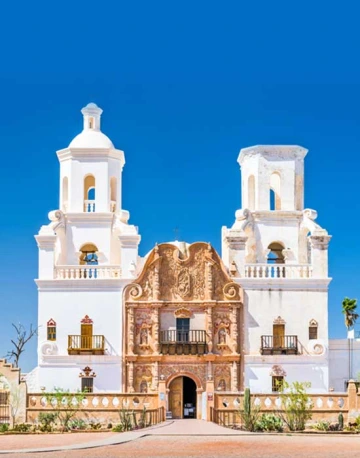Heritage Conservation
Graduate Certificate
Quick Facts

Top 1%
of all Higher-Ed
Institutions
- Center for World University Rankings, 2024
One of only two fully-online graduate certificates in heritage conservation in the country
Develop a strong knowledge base and tangible skills for professional preservation practice in heritage conservation for the built environment.
The Heritage Conservation program prepares students to enter the public and private sectors such as the National Park Service, local historic preservation offices and museums, and cultural resources consulting firms. This practice is part of a comprehensive ethic of environmental, cultural and economic sustainability.
This program is a participant in the Desert Southwest Cooperative Ecosystem Studies Unit (DSCESU). Through the DSCESU, Heritage Conservation students have engaged in service-learning projects. They have been hired as research assistants for projects such as Valle Caldera National Preserve, Casa Grande Ruins National Monument, Organ Pipe National Monument and Zion National Park.
*Residents of some U.S. Territories may not be eligible. Please see our Eligibility & State Authorization page for more information.
The curriculum for this program consists of five three-credit courses:
This course is an overview of the interdisciplinary paradigms, principles, programs, and players in the field of heritage conservation ranging from local to international contexts.
In this course, students will address complex social equity considerations associated with historic designation, examine economic incentives, and explore preservation philosophy, cross-cultural values and emerging trends. Students will also gain skills to connect historic preservation technical and policy requirements with pragmatic social and economic concerns of community development.
Examine methods to document buildings, districts, and cultural landscapes and interpret historical and architectural significance using federal standards and templates and professional standards. Students will review preservation policy and jurisdictional issues within the community development context. (Offered in the Spring Semester)
Become familiarized with important social, economic, political, and technological agendas that have shaped the design of built environment and public realm. Students will learn many of the key debates in recent urban and architectural theory; the distinctive language of contemporary theory; issues of cultural diversity; as well as writing strategies to develop their critique of concepts relative to the course material and interpretations of existing and emerging themes in architecture and urbanism. (Offered in the Fall semester)
This course deals with the documentation, interpretation and management of cultural landscapes. Cultural landscapes are a heritage resource combining natural and cultural environments, from the local to the global. It is a wide-ranging field that includes protection of smaller, well-defined sites with tangible historic elements, to vast landscapes with intangible associations that embody a sense of place and identities of a people.
Outcomes
Skills
Earning your Graduate Certificate in Heritage Conservation will build core skills, including:
- Active listening
- Analyzing historical data
- Architectural conditions assessment
- Community engagement
- Data analysis
- Graphic communication
- Historic documentation
- Historic research
- Preservation plan development
- Professional report writing
- Recording historical data
- Remediation of historic landscapes
- Surveying historical data
- Writing and communication
Potential Career Paths
Graduates of the Historic Preservation Program will be qualified to pursue careers as cultural resource specialists and historic preservationists.
Graduates who have complementary degrees in other fields are prepared for the following careers:











